The instructions for cooking this pickle come from women who never knew recipes as we know them: detailed, involving descriptions, weights, measures and cooking times. Instead, they were passed down verbally, in the intimacy of their own kitchens, by demonstrating them year after year, often over a lifetime. Coorg-style prawn pickle reaches into a life we no longer live, when almost everything we ate was also what we grew ourselves on our plantations, or we could trace back to its source. It was a life lived at another pace, which offered more time, reflected in the heaped pyramid of small prawns that you need to shell and clean to get the work started. You could opt for the larger ones, but they never taste as good as the small, fiddly prawns in a pickle like this one. There’s the spice paste to be prepared, ground to perfection and cooked in the proportions judged just right to give you the taste that you remember and long for, followed by more cooking and balancing of flavours before the final bottling.
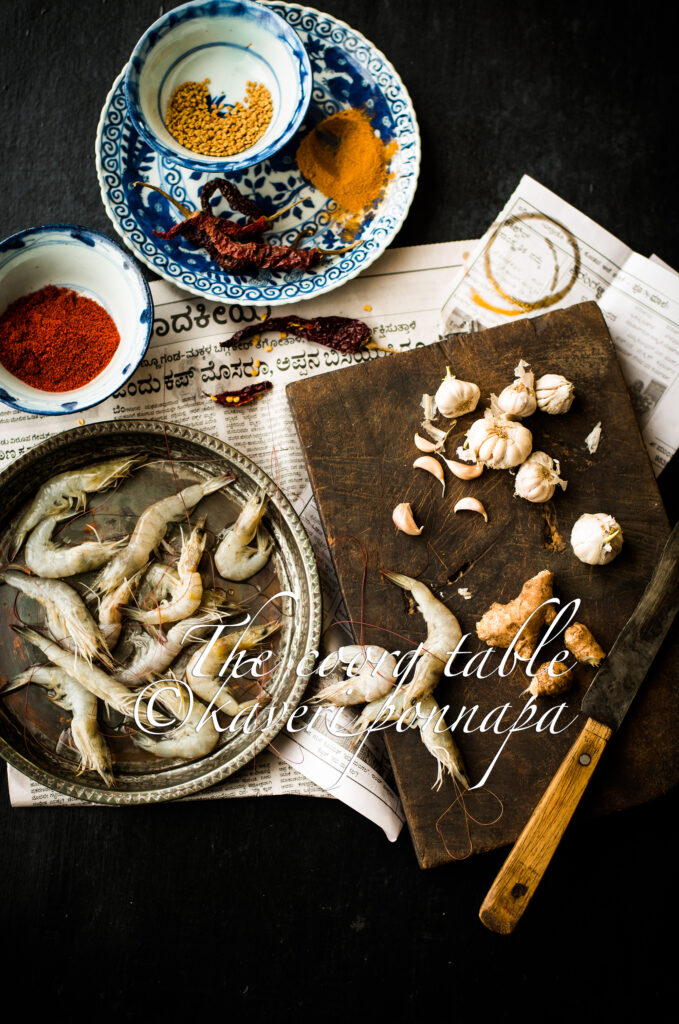
Making a pickle like this one has me thinking at every stage of Jenny Linford’s fascinating and illuminating book, The Missing Ingredient, about what she calls the ‘universal, invisible ingredient’ in every dish—time. An ingredient we forget about, fight against, and try to cut down to its barest minimum in the way we cook today. To make this prawn pickle, you have to spend time choosing the right kind of prawns that go into it, followed by a considerable amount of it sorting, peeling and cleaning. The scant instructions tell you to fry the prawns ‘a little’ after cleaning. It may take you several batches of pickle to work out just how long the gap is between rubbery and hard and the tender juicy textures in a swirl of spice that you remember. The spice paste needs to be fried slowly to release its aromas. If hurried, it leaves an unpleasant, bitter trail on the tongue.
But why would you want to hurry the process of this brilliant side-dish that preserves the best of one season into another and elevates the simplest meal to something special? Besides, working with your hands has a deeply meditative quality, creating a connectedness that engages all your senses and bringing indescribable pleasure to the entire process.
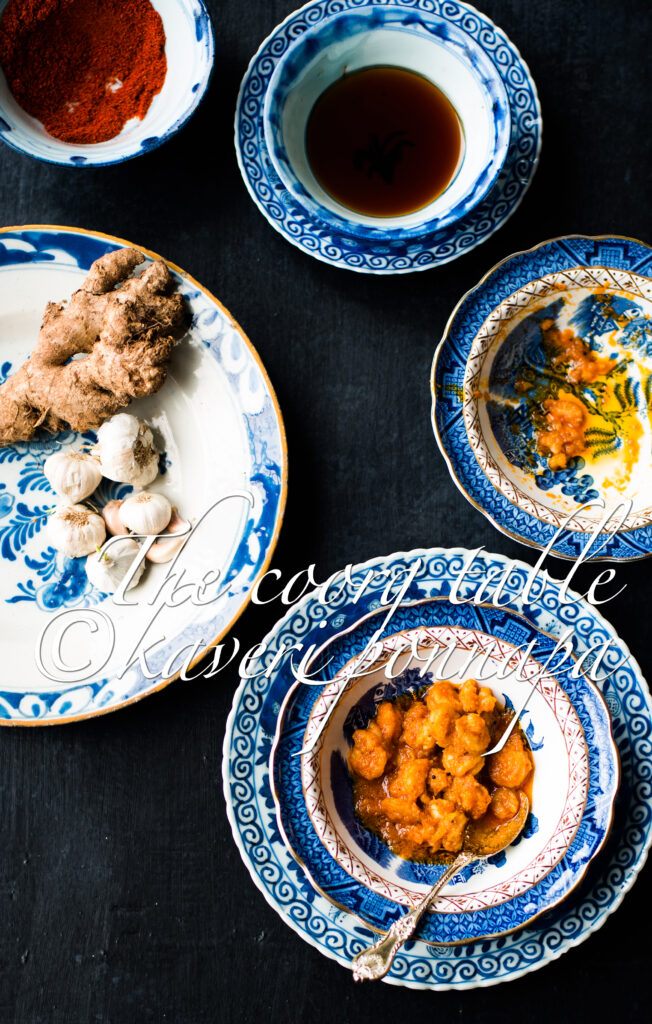
There are many layers of satisfaction to be had from following this pickle from start to finish: the salty freshness of the prawns; the crisp crunch of the shell as it peels away; the clear scent of ginger; warm garlic and a sharp whiff of chilli; the changing colours and aromas of the spice paste swirling in hot oil and the anticipation of waiting days for the spices to ‘take hold’ before the bottle is ready for the table. I keep reminding myself that at one time, these pickles, like the instructions to make them, came as gifts from women who had spent hours, weeks, months, perhaps lifetimes, perfecting them, before handing them over to us knowing that they would be cherished and savoured with the love and respect they deserved.
A lot of what gets stacked onto modern kitchen shelves can be replenished with almost frightening speed: think of the bottles of commercially produced prawn pickle that line supermarket shelves in seemingly invincible rows. But do we ever linger over the contents of those bottles as we do over a home-made prawn pickle, relishing every plump, hot, tangy morsel, scraping out the last drops of the spice-infused oil to mash into hot rice, flavours that leave us seated at the table for a while, sunk in contentment?
All Food Styling: Kaveri Ponnapa
Photo Credits: A.G.P Sathyaprakash
Do look out for the recipes of all the food featured here in my upcoming cookbook.

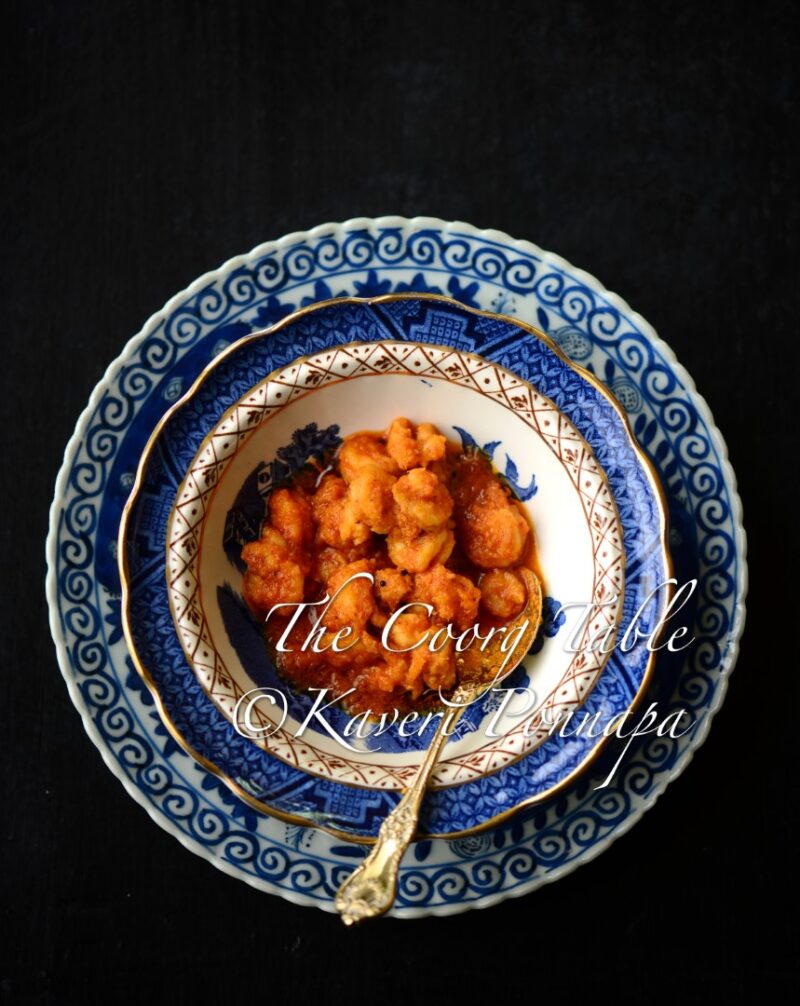
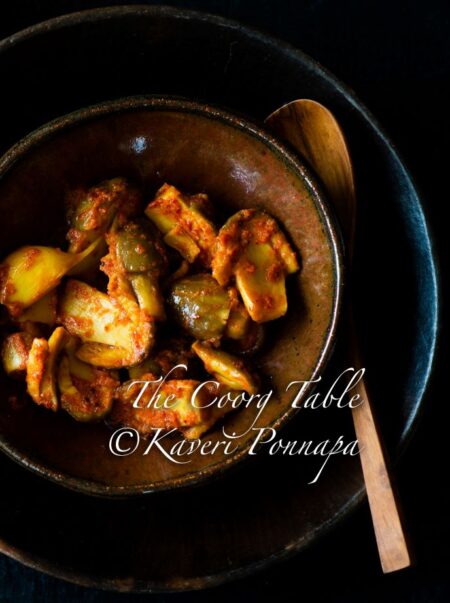
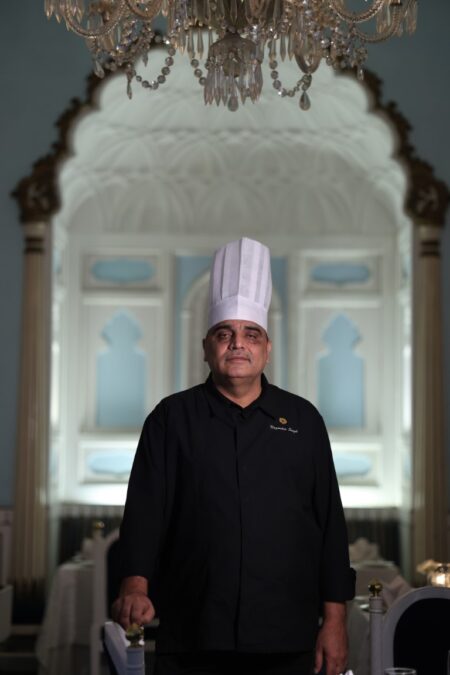

hi. enjoy reading your podcasts -could you share a recipe for dried meat – pork and mutton.
It is pleasure to see your post again. As I written earlier it cherishes our old good memories. I always enjoy reading again and again. As always a wonderful narration. Keep posting..thank you
Hello Kaverappa, welcome back to The Coorg Table. Thank you very much for reading, and for your generous words. It means a lot that these posts are a source of interest to readers like you. I have written them as a way of recording and keeping alive the experiences of the Kodava way of life and experiences which are changing so swiftly, as we watch.